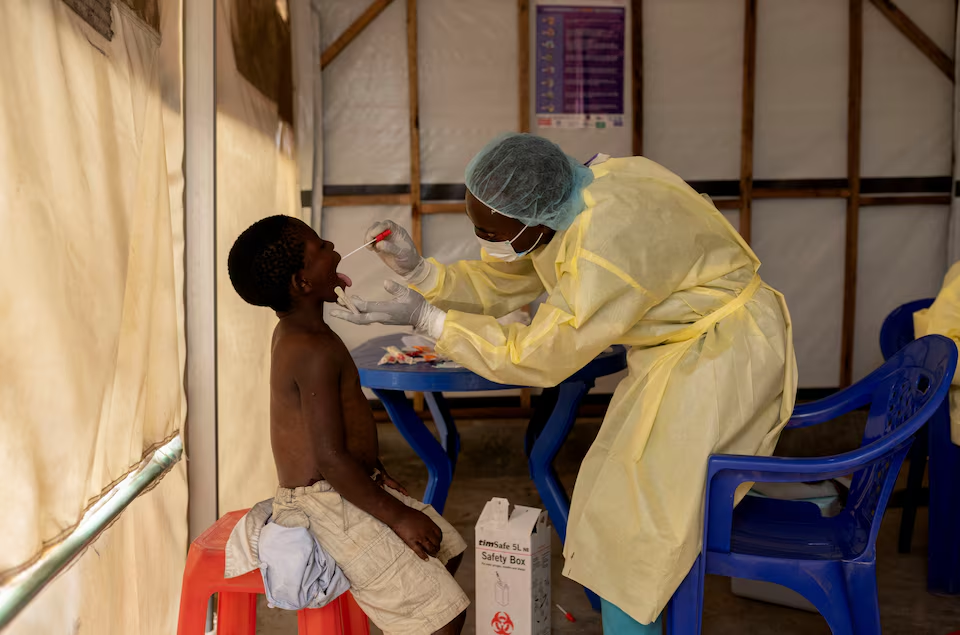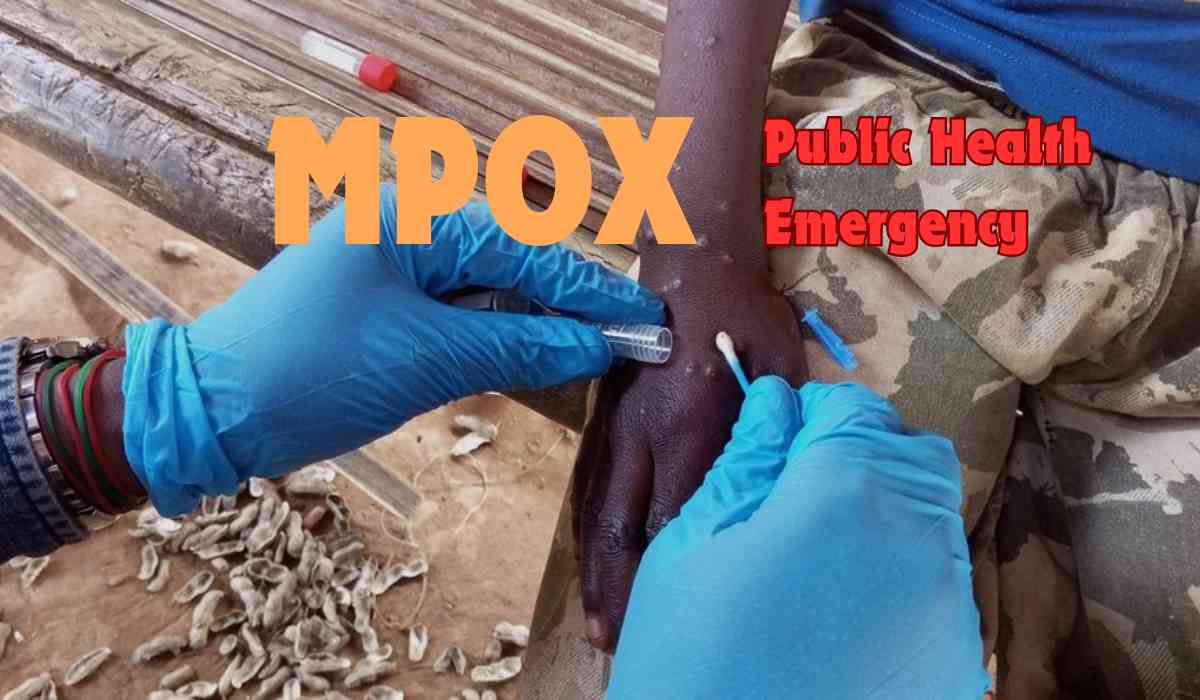For the second time in the previous two years, the World Health Organisation (WHO) has deemed mpox a global health emergency. This decision, made by WHO director-general Tedros Adhanom Ghebreyesus, comes as a new, more dangerous form of the virus that spreads rapidly in Africa and cases emerge in new countries worldwide.
What is Mpox?
Mpox, formerly known as monkeypox, is a viral infection that causes fever and a distinctive rash. It usually spreads through close physical contact. The virus was first identified in 1958 during outbreaks in research monkeys, but it can infect humans too. Until recently, most human cases were seen in central and west Africa, often linked to contact with infected animals or consuming bushmeat.

A new strain causes serious concern
A new type of mpox, called Clade 1b, has emerged in the Democratic Republic of the Congo (DRC). Dr. Leandre Murhula Masirkika, a local scientist pioneering research on the ground, describes this strain as:
♦ more deadly, with a fatality rate up to 10% in children and 5% in adults.
♦ spreading more easily between people
♦ Capable of infecting adults as well as children
♦ not requiring sexual contact to spread
♦ Causing more severe symptoms, including widespread lesions and high fevers
"This is the most dangerous clade of mpox we have ever seen," Dr. Masirkika warned.

Rapid Spread in Africa and Beyond
The DRC has recorded nearly 15,000 suspected cases and over 500 deaths in 2024 alone, a 160% increase compared to the same period last year. The virus has now spread to neighbouring countries, including Kenya, Uganda, Rwanda, and Burundi.
Children at high risk
Alarmingly, children under 15 now account for more than 70% of mpox cases and 85% of deaths in the DRC. Save the Children reports that the disease is rife in overcrowded hospitals and refugee camps. Jacques, an epidemiologist with the charity in South Kivu, described a harrowing case of a six-week-old baby with rashes all over his body and blackening skin.

The global spread continues
The virus continues to appear in new countries.
► Sweden Reports First Case: Sweden has confirmed its first case of the new, more dangerous mpox strain in someone who had recently been in Africa.
► Pakistan Reports Suspected Case: Pakistan has reported its first suspected mpox case of the year, bringing its total to 12 suspected or confirmed cases in the past two years. The case involves a young man from Khyber Pakhtunkhwa who recently returned from the Gulf.
Pakistani Response: Health authorities have issued a high alert across the country, implementing strict measures including border monitoring and hospital preparedness.
عالمی ادارہ صحت نے کانگو اور افریقہ کے دیگر علاقوں میں ایم پاکس کی نئی قسم کو عالمی ہنگامی صورتحال قرار دیا ہے۔ افریقہ میں بچوں اور بڑوں میں کیسز کی تصدیق ہو چکی ہے۔ پاکستان میں ابھی تک ایم پاکس کی اس نئی قسم کا کوئی کیس رپورٹ نہیں ہوا۔ pic.twitter.com/7XT2ZIaW5u— Ministry of National Health Services, Pakistan (@nhsrcofficial) August 15, 2024
Why is this a global concern?
Professors and experts like Trudie Lang of Oxford University expressed worry about the virus's potential to spread: "The risk of it moving is big. There's the case in Kenya where a trucker brought it in, and people can get on a plane with it."
Previous Global Outbreak
In 2022, mumps triggered outbreaks in more than 70 countries worldwide, primarily affecting gay and bisexual men. That outbreak was caused by a different, less dangerous strain of the virus (clade 2).
What Happens Now?
The WHO's emergency declaration, known as a Public Health Emergency of International Concern (PHEIC), aims to mobilise resources and coordinate international efforts to contain the outbreak.
The emergence of a new clade of #mpox, its rapid spread in eastern #DRC, and the reporting of cases in several neighbouring countries are very worrying.
On top of outbreaks of other mpox clades in DRC and other countries in Africa, it’s clear that a coordinated international… pic.twitter.com/u2DSV6fitj— Tedros Adhanom Ghebreyesus (@DrTedros) August 14, 2024
Potential Solutions
Experts suggest several steps to combat the outbreak:
- Increasing vaccine supplies, particularly for children and at-risk adults in affected regions
- Improving diagnostic testing capabilities
- Enhancing surveillance to detect new cases quickly
- Providing better access to treatments in Africa
Professor Piero Olliaro of Oxford University noted the complexity of the situation: "These are two parallel outbreaks of two variants with different modes of transmission and at-risk groups, thus requiring different strategies for containment."
Health officials stress the need for vigilance and quick action to prevent further spreads. They caution that the situation in Africa has been largely ignored by the international community and requires urgent attention and resources. The emergence of cases in new countries like Sweden and Pakistan underscores the potential for global spread and the critical need for coordinated international action to contain this evolving threat.
Inputs by Agencies
Image Source: Multiple Agencies
Ⓒ Copyright 2024. All Rights Reserved Powered by Vygr Media



















